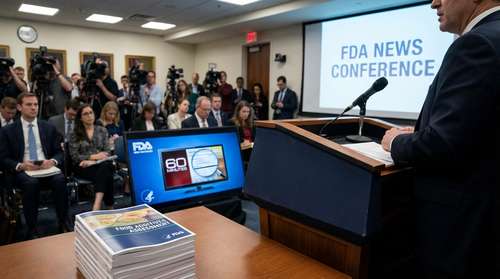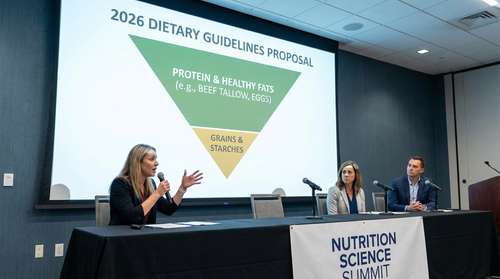Picture this: grandpa spends the morning exploring the park with his grandkids, laughing and pointing out birds along the way. Grandma sits in her cozy chair, knitting a blanket, sharing stories of the past with a sharp wit that keeps everyone entertained.
They still tend to the garden, nurture the blooming flowers, and keep up with their family’s lively routines. Yet, all of this can be taken away—sometimes slowly, without warning—by silent nutritional deficiencies in seniors. Vitamin deficiencies in older adults are often silent but can strip away independence, one vitamin at a time.
And it’s not just a concern for seniors. For younger readers, understanding senior nutrition early on is an investment in their own future well-being. Let’s take a closer look at these hidden nutritional deficiencies in seniors, the challenges they bring, and powerful ways to keep the health thieves at bay.
Why Nutritional Deficiencies Are So Common in Seniors—and What’s at Stake

The truth is, the body’s needs change over time, often in ways that make it harder for seniors to stay nourished. Several factors are at play here:
1. Reduced Absorption Abilities
The stomach produces less acid with age, making it harder to absorb vitamins like B12, calcium, and iron. When these vitamins are missing, strength, memory, and even immune function begin to wane.
2. Effects of Medications
Many medications commonly prescribed to older adults can actually interfere with nutrient absorption. For instance, acid reflux medicines reduce B12 absorption, while diuretics can cause magnesium loss, leading to fatigue or muscle weakness.
3. Shifts in Appetite and Diet
With changes in taste and appetite, seniors often skip meals or eat less variety, resulting in lower nutrient intake. This makes it harder to meet the body’s needs for specific vitamins and minerals, even with regular meals.
4. Chronic Conditions
Conditions like diabetes, arthritis, or cardiovascular issues add layers of complexity, increasing nutrient needs but also impacting the body’s ability to absorb them effectively.
Understanding these challenges shows us that nutritional deficiencies in seniors aren’t just likely—they’re almost inevitable without focused, proactive solutions.
The “Silent Thieves” of Senior Vitality: The Most Common Deficiencies to Watch For
Let’s uncover the most common vitamin deficiencies in older adults that often go unnoticed and see how each impacts daily life.
1. Vitamin B12: The Brain and Energy Booster You Don’t Want to Miss
Vitamin B12 is essential for energy, memory, and nerve function. Without enough B12, seniors may feel tired, forgetful, and irritable. But here’s the twist—B12 requires adequate stomach acid to be absorbed, and lower acid levels in older adults mean that B12 deficiency is all too common.
How to Fix It: Boost B12 by including foods like lean meats, fish, eggs, and dairy. For those struggling with absorption, dietary supplements for seniors are a good option. Try sublingual B12 (dissolves under the tongue), which bypasses the digestive tract and delivers the vitamin directly into the bloodstream. Seniors with severe deficiency may benefit from B12 injections—quick and effective solutions for replenishing levels.
Did You Know? Up to 20% of people over 60 are low in B12, according to a Harvard study. Low B12 is connected with cognitive decline and depressive symptoms, common issues in older adults.
2. Vitamin D: The Bone and Immunity Booster

Vitamin D, the “sunshine vitamin,” supports bone health by helping the body absorb calcium. Yet, even seniors in sunny areas often lack Vitamin D, since aging skin produces less of it and time outdoors may decrease with age.
How to Fix It: Incorporate more Vitamin D by eating fatty fish (like salmon or mackerel), fortified dairy products, and eggs. For many seniors, daily Vitamin D supplements are essential—ask a doctor about the right dose, as needs can vary widely.
Fun Fact: According to the National Institutes of Health, seniors with adequate Vitamin D levels are at lower risk for falls and fractures. But Vitamin D isn’t just for bones—it boosts the immune system too, defending against common infections.
3. Calcium: The Foundation for Bone Strength
Calcium doesn’t just keep bones strong; it plays a key role in nerve and muscle function, too. A calcium deficiency can lead to brittle bones, dental problems, and even increased risk of heart disease—a triple threat for older adults.
How to Fix It: Boost calcium intake with dairy products like milk, yogurt, and cheese, or non-dairy sources like almonds and leafy greens. Additionally, consider calcium supplements paired with Vitamin D for best results. Consult your doctor about your calcium intake to ensure balance, as excessive calcium can have adverse effects.
Did You Know? Osteoporosis, a common condition among seniors, is directly linked to low calcium intake. A diet rich in calcium can make a big difference in maintaining strong bones well into later years.
4. Magnesium: The Calming Mineral for Mind, Muscles, and Heart
Magnesium plays a role in muscle relaxation, heart rhythm, and even sleep quality. Low levels can lead to muscle cramps, high blood pressure, and poor sleep, which can further drain seniors’ energy.
How to Fix It: Include foods like nuts (especially almonds and cashews), leafy greens, and whole grains in your diet. Some seniors might need magnesium supplements, but it’s essential to balance magnesium intake as too much can cause digestive discomfort.
Fun Fact: The NIH reports that nearly half of older adults don’t get enough magnesium. Insufficient magnesium is linked to poor sleep quality, which can impact cognitive health and overall energy.
5. Iron: The Energy Catalyst
Iron deficiency in seniors can lead to anemia, causing fatigue and weakness. While iron deficiency is often associated with younger adults, it’s also common in seniors and can have a profound impact on quality of life.
How to Fix It: Red meat, poultry, and fortified cereals are good sources of iron. Seniors who prefer a plant-based diet can focus on spinach, beans, and lentils, pairing them with Vitamin C-rich foods like citrus fruits for better absorption.
Did You Know? Fatigue and weakness, common complaints among seniors, are often rooted in low iron levels. Boosting iron can make a marked difference in energy and overall vitality.
How to Combat Nutritional Deficiencies in Seniors: An Actionable Plan for Lasting Health

Addressing these deficiencies isn’t the end. Here’s how seniors can build a life of resilience and strength through intentional nutrition and smart supplementation.
1. Embrace Nutrient-Dense Meals Over “Three Square Meals”
Forget “three square meals a day.” Focus on meals packed with nutrients, emphasizing foods like salmon, eggs, berries, leafy greens, and nuts. Each meal is a chance to build strength and resilience.
Quick Tip: Make half your plate colorful veggies, a quarter lean protein, and a quarter whole grains. This approach delivers balanced nutrition in every meal, supporting all aspects of senior health.
2. View Supplements as Nutritional Allies
Supplements can be lifesavers when dietary needs aren’t fully met through food alone. Dietary supplements for seniors—like B12, Vitamin D, and calcium—should complement, not replace, good nutrition. Work with a healthcare provider to find the right supplement plan.
Dr. Larson’s Advice: “Think of supplements as safety nets, not substitutes for real food. They’re here to support you, especially when diet alone falls short.”
3. Stay Active
Movement enhances digestion and improves nutrient absorption. Daily physical activity, whether it’s walking, gardening, or light resistance exercises, increases blood flow, delivering nutrients where they’re needed most. Regular movement also keeps bones strong and the heart healthy.
4. Routine Health Check-Ups
Routine screenings are vital to catch nutritional deficiencies in seniors early and prevent them from escalating. Blood tests for B12, iron, calcium, and Vitamin D can help guide your senior nutrition plan and supplement needs. Make nutrient testing a regular part of healthcare check-ups.
Conclusion: Reclaiming the Simple Joys Through Better Nutrition
Imagine the life you envision for your golden years. A life where you can walk with the grandkids, share meals with loved ones, and experience each day with energy and clarity. Nutritional health is key to unlocking that vision and making it a reality. Apart from checking for Vitamin deficiencies in older adults, there are wearables and apps that can be employed to support health monitoring for seniors.
Remember, age is inevitable, but vitality is a choice. Start today with the choices that will give you the strength, focus, and freedom to continue living a life that is as full as it is fulfilling.




